A part of this viewing list: Criterion Collection Spine #160: René Clair’s À nous la liberté.
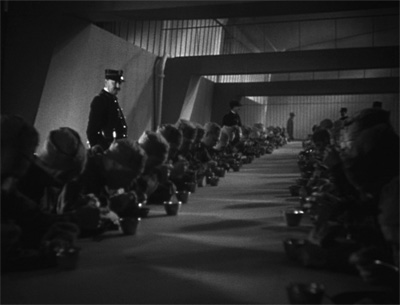
Ever since I first saw this film a few years ago its cheery theme song comes back as an earworm at least once a month. “À nous, à nous, la li-ber-té!” While it is no longer roll-on-the-floor hilarious, it is still a light-hearted and enjoyable jaunt through an idealized, not-yet-cynical 20th century industrial environment. I promise not to fill this review with hyphens, although it might already be too late. Even if Clair made the film today it still might be bereft of the cynicism, so potent is the joie de vivre of the main characters. The plot is relatively simple, two friends attempt to escape from the pen, but only one makes it, and becomes a successful industrialist. Years later his yurodivy friend ends up working in the same factory, even though he’d rather be napping in a field of wildflowers. They rekindle their friendship, by accident, but the center cannot hold as other criminals try to blackmail the escaped con/industrialist.
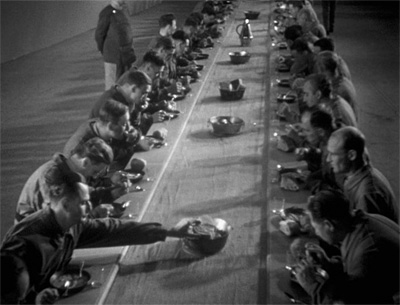
He manages to stave off this doom long enough to bequeath his entire corporation to the workers and escapes with his friend in the ensuing windstorm/riot. In a reprise of the theme song at the end, both friends are happy as wandering bums, free as the wind and with as few cares.
While the core of the plot requires little to think about [as the core of the film is comedy] its appendages are open to many readings. Throughout the film, comparisons are made between prison life and factory life, which you can see in the first two screen shots I’ve provided. Initially all the references to freedom are made by people who are, in some way, not free at all. The song is yearning and motivational at these points as opposed to its function as a hymn of rejoicing in the end. While the film has an unmissable socialist flavor to it, it is less a critique of authority than a document of man’s tendency to obsess about order, even unto the loss of freedom.
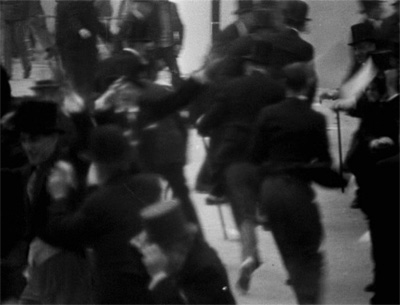
Even as an industrialist, Louis, is restricted by the expectations of his sycophants, the need to conform to the behavior that other wealthy people expect, and his past. He has managed to drug himself with his wealth and it takes the return of Emilé to remind him that life is not about being important, but about being happy and free. This recognition likely provides the inspiration he has to give the newly automated factory over to the workers, who can now spend their days bowling, playing cards, fishing or dancing instead of making phonographs. Despite its focus on freedom, the film isn’t really existentialist, since it equates freedom with a lack of responsibility instead of freedom as responsibility itself.
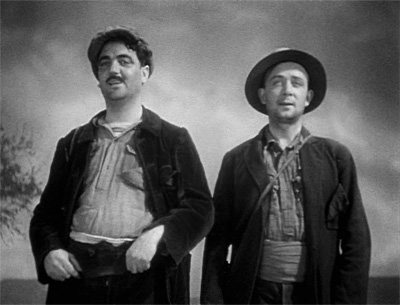
It is claimed and debated that this film was the inspiration/plagiarized for Chaplin’s Modern Times, but I think that whole discussion is missing the point; that in the context of the age, there was a need for films as specifically similar as these to be made. Socialism and the assembly line were relatively new and fresh ideas, ripe with promise and expectation. What René Clair creates in À nous la liberté is an alloy of the two, where automation leads to utopia and freedom for all. Despite the now-obvious errors in his idea, À nous la liberté’s hope for the future and zest for freedom remain inspiring even 75 years later.
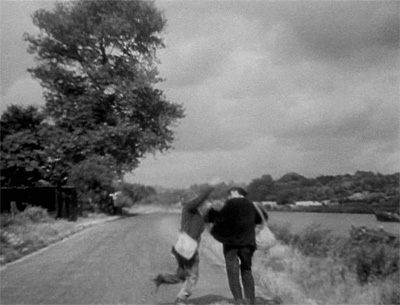
• Criterion Essay by Michael Atkinson.
• DVD Journal essay by Mark Bourne.
• Senses of Cinema article by John Flaus.
• DVD Verdict essay by Barrie Maxwell.
• YouTube clip [a bit sketchy at the beginning, but settles out].